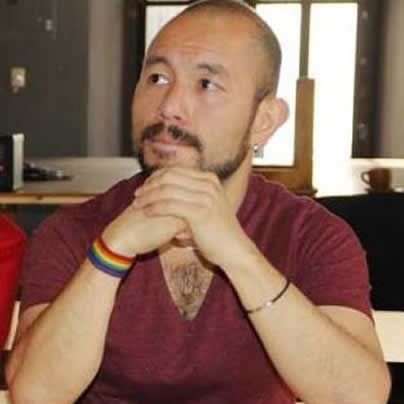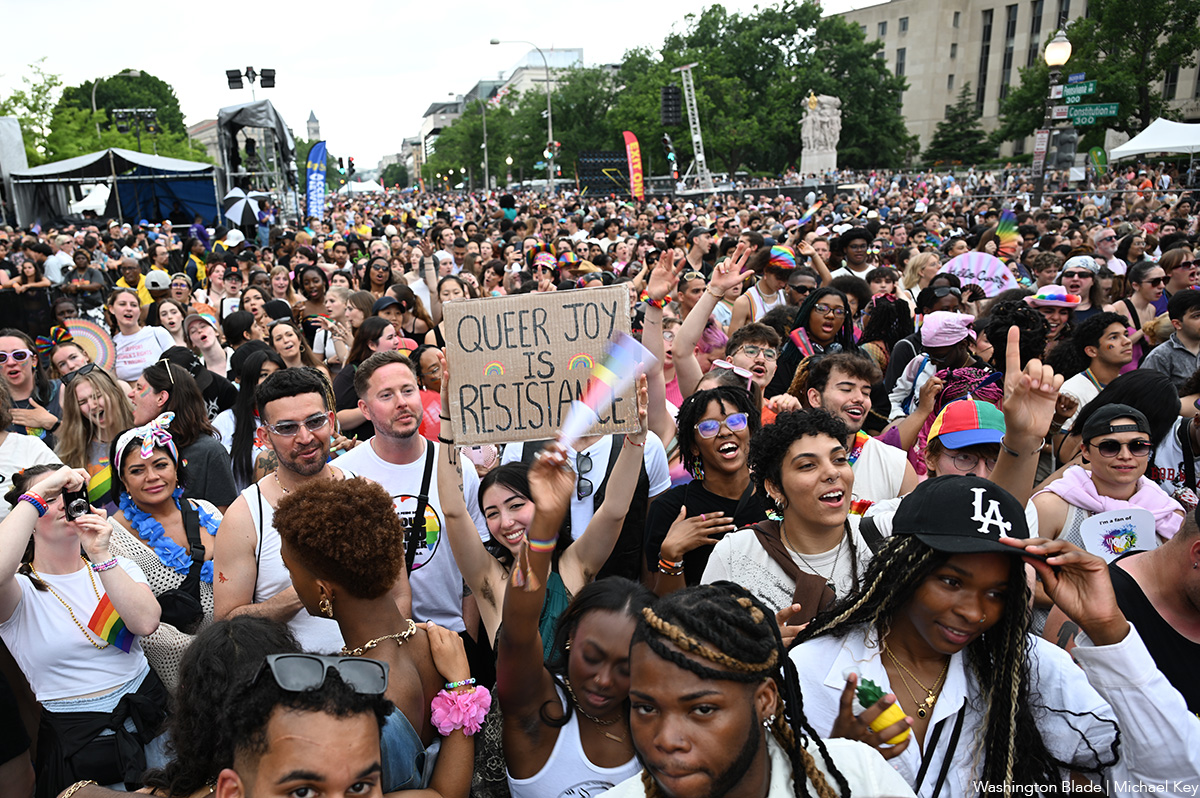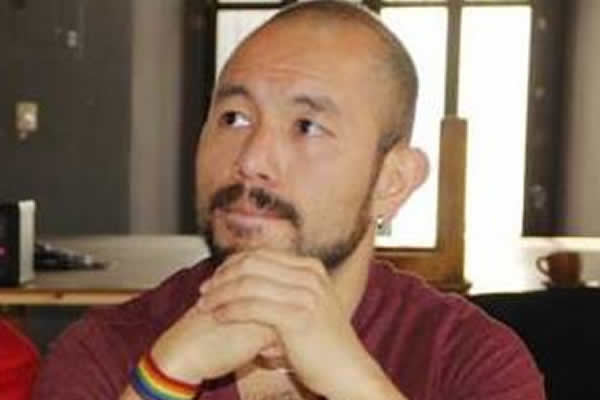News
Mexican same-sex couples seek marriage rights
Country’s Supreme Court last December struck down Oaxaca gay nuptials ban

The movement for marriage rights for same-sex couples in Mexico continues to gain momentum as more gays and lesbians across the country seek the ability to exchange vows.
A gay couple in the city of Mérida in the state of Yucatán on Aug. 8 tied the knot after a federal judge in July said the two men could marry. A judge in the state of Chihuahua in which Ciudad Juarez is located on Aug. 19 ruled in favor of five same-sex couples who had sought legal recourse — known as an “amparo” in the Mexican judicial system — that would allow them to marry.
A judge in the state of México, which is outside Mexico City, the country’s capital, in June ruled in support of four same-sex couples who had sought marriage rights. Local authorities appealed the decision.
Gays and lesbians in the states of Colima; Baja California; Guanajuato; Morales and Jalisco, in which Guadalajara and the resort city of Puerto Vallarta are located, have also petitioned local authorities to extend marriage rights to them.
These developments are taking place nearly a year after the Mexican Supreme Court found a Oaxacan law that bans same-sex marriage unconstitutional.
Three couples tried to apply for marriage licenses in the state, but local authorities denied their applications. Lawyer Alex Alí Méndez Díaz filed lawsuits on behalf of two of the couples in August 2011 and a third in January 2012.
The justices unveiled their decision in February.
One of the Oaxacan couples that sought the right to marry tied the knot in March in what Méndez told the Washington Blade is the first same-sex marriage to take place in Mexico under a court order. He said a second couple will exchange vows in December, but the third couple will not marry in what Méndez described as a “symbol of solidarity with the local LGBT movement” over “legislative indifference to make the necessary reforms” to avoid bringing the issue to the Mexican federal courts.
Fourteen countries, along with 13 states and D.C. allow gays and lesbians to legally marry.
Mexico City in 2010 extended marriage rights to same-sex couples. The Mexican Supreme Court has ruled other states must recognize gay marriages legally performed in the Mexican capital.
Gays and lesbians have also exchanged vows in the state of Quintana Roo on the Yucatán Peninsula in which Cancún is located. The state of Coahuila offers property and inheritance rights and other limited legal protections to same-sex couples.
Opposition to marriage rights for same-sex couples in Mexico remains in spite of recent advances on the issue.
Congresswoman Ana María Jiménez Ortiz, who represents the conservative political party PAN in the state of Puebla outside Mexico City, last month sparked controversy when she suggested officials should allow marriage only for “people that can look at each other in the eye while having sexual intercourse.”
“[That is] something that does not happen in homosexual couples,” she said.
Catholic groups in the month after the Mexican Supreme Court released its Oaxaca ruling submitted to the country’s Congress a petition against marriage rights for same-sex couples with 23,000 signatures.
“One can say that the rulings announced last December with respect to the Oaxacan cases mean the possibility that marriage equality is possible throughout Mexico through the judicial process,” Méndez told the Blade. “Unfortunately established moral and religious prejudices in the same state institutions have impeded any rapid movement on the issue.”
World
Top 10 international LGBTQ news stories of 2025
Marriage progress in Europe; trans travel advisories depress WorldPride attendance

The Trump-Vance administration and its policies had a significant impact on the global LGBTQ rights movement in 2025. War, anti-LGBTQ crackdowns, protests, and legal advances are among the other issues that made headlines around the world over the past year.
Here are the top international stories of 2025.
10. Australia ends ban on LGBTQ blood donors
Australia on July 14 ended its ban on sexually active LGBTQ people from donating blood.
“Lifeblood (the Australian Red Cross Blood Service) has been working to make blood and plasma donation more inclusive and accessible to as many people as possible, whilst maintaining the safety of the blood supply,” said the Australian Red Cross Blood Service in a press release that announced the new policy.
Lifeblood Chief Medical Officer Jo Pink said the new policy will allow 24,000 additional people to donate blood each year.
9. Kenyan judge rules gov’t must legally recognize trans people
A Kenyan judge on Aug. 20 ruled his country’s government must legally recognize transgender people and ensure their constitutional rights are protected.
Justice Reuben Nyakundi of the Eldoret High Court in western Kenya ruled in favor of a trans athlete who was arrested in 2019 and forced to undergo a medical examination to determine her gender. The 34-year-old plaintiff who is a board member of Jinsiangu, a trans rights organization, said authorities arrested her at a health facility after they claimed she impersonated a woman.
“This is the first time a Kenyan court has explicitly ordered the state to create legislation on transgender rights, and a first in the African continent,” noted Jinsiangu in a statement. “If implemented, it could address decades of legal invisibility and discrimination faced by transgender persons by establishing clear legal recognition of gender identity, protection against discrimination in employment, housing, healthcare, and education, and access to public services without bias or harassment.”
8. U.S. withdraws from UN LGBTI Core Group
The U.S. in 2025 withdrew from the U.N. LGBTI Core Group, a group of U.N. member states that have pledged to support LGBTQ and intersex rights.
A source told the Washington Blade the U.S. withdrew from the Core Group on Feb. 14. A State Department spokesperson later confirmed the withdrawal.
“In line with the president’s recent executive orders, we have withdrawn from the U.N. LGBTI Core Group,” said the spokesperson.
7. Wars in Gaza, Ukraine continue to make headlines
Israeli airstrikes against Iran prompted authorities in Tel Aviv to cancel the city’s annual Pride parade that was scheduled to take place on June 13.
The airstrikes prompted Iran to attack Israel with drones and missiles. One of them destroyed Mash Central, a gay bar that was located a few blocks from the U.S. Embassy in Tel Aviv. Marty Rouse, a longtime activist who lives in Maryland, was in Israel with the Jewish Federations of North America when the war began. He and his group left the country on June 15.
Bet Mishpachah, an LGBTQ synagogue in D.C., welcomed the tenuous ceasefire between Israel and Hamas that took effect on Oct. 10, roughly two years after Hamas militants killed upwards of 1,200 people and kidnapped more than 200 others when they launched a surprise attack on the country.
In Ukraine, meanwhile, the war that Russia launched in 2022 drags on.
6. Int’l Criminal Court issues arrest warrants for Taliban leaders
The International Criminal Court on July 8 issued arrest warrants for two top Taliban officials accused of targeting LGBTQ people, women, and others who defy the group’s strict gender norms.
The warrants are for Hibatullah Akhundzada, the Taliban’s supreme leader, and Afghanistan Chief Justice Abdul Hakim Haqqani.
Karim Khan, the ICC’s chief prosecutor, in January announced a request for warrants against Taliban officials over their treatment of women and other groups since they regained control of Afghanistan in 2021. The request marked the first time the court specifically named LGBTQ people as victims in a gender persecution case before it.
5. Hundreds of thousands defy Budapest Pride ban
More than 100,000 people on June 28 defied the Hungarian government’s ban on public LGBTQ events and participated in the 30th annual Budapest Pride parade.
Former Irish Prime Minister Leo Varadkar, who is his country’s first openly gay head of government, and openly gay MEP Krzysztof Śmiszek, who was previously Poland’s deputy justice minister, are among those who participated in the march.
Hungarian Prime Minister Viktor Orbán and his Fidesz-KDNP coalition government have faced widespread criticism over its anti-LGBTQ crackdown.
Hungarian lawmakers in March passed a bill that bans Pride events and allow authorities to use facial recognition technology to identify those who participate in them. MPs in April amended the Hungarian constitution to ban public LGBTQ events.
4. LGBTQ delegation travels to Vatican to meet Pope Leo after Francis dies
Pope Francis died on April 21.
The Vatican’s tone on LGBTQ and intersex issues softened under the Argentine-born pope’s papacy, even though church teachings on homosexuality and gender identity did not change.
The College of Cardinals on May 8 chose Pope Leo XVI, an American cardinal from Chicago who was bishop of the Diocese of Chiclayo in Peru from 2015-2023, to succeed Francis.
Leo on Sept. 1 met with the Rev. James Martin, a Jesuit priest who founded Outreach, a ministry for LGBTQ Catholics. A gay couple from D.C. — Jim Sweeney and the Rev. Jason Carson Wilson — are among those who took part in an LGBTQ pilgrimage to the Vatican a few days later that coincided with the church’s year-long Jubilee that began last Christmas Eve when Francis opened the Holy Door.
3. EU’s top court rules states must recognize same-sex marriages
The European Union’s top court on Nov. 25 ruled member states must recognize same-sex marriages legally performed in other member states.
The EU Court of Justice in Luxembourg ruled in favor of a couple who challenged Poland’s refusal to recognize their German marriage.
The couple who lives in Poland brought their case to Polish courts. The Polish Supreme Administrative Court referred it to the EU Court of Justice.
“Today’s ruling of the Court of Justice of the EU is of key importance not only for the couple involved in the case, but also for the entire LGBT+ community in Poland,” said the Campaign Against Homophobia, a Polish LGBTQ and intersex rights group.
2. U.S. funding cuts devastate global LGBTQ community
The Trump-Vance administration’s decision to cut U.S. foreign aid spending in 2025 has had a devastating impact on the global LGBTQ rights movement.
Council for Global Equality Chair Mark Bromley noted to the Blade the U.S. historically funded roughly a third of the global LGBTQ rights movement.
Groups around the world — including those that worked with people with HIV/AIDS — that received U.S. funding had to curtail programming or close altogether. LGBTQ+ Victory Institute President Elliot Imse earlier this year noted the global LGBTQ rights movement in 2025 was set to lose more than $50 million.
“It is a catastrophe,” he said.
1. Countries boycott WorldPride amid travel advisories
Canada and a number of European countries in 2025 issued travel advisories for trans and nonbinary people who planned to visit the U.S.
The advisory the Danish government issued notes President Donald Trump’s executive order that bans the State Department from issuing passports with “X” gender markers. It also notes “two gender designations to choose from: male or female” when applying for an ESTA (Electronic System for Travel Authorization) or visa for the U.S.
Egale Canada, one of Canada’s largest LGBTQ advocacy organizations, in February announced its members would not attend WorldPride, which took place in D.C. from May 17-June 8, or other events in the U.S. because of the Trump-Vance administration’s policies. Other advocacy groups and activists also did not travel to the U.S. for WorldPride.
InterPride, which coordinates WorldPride, also issued its own travel advisory for trans and nonbinary people.
National
Top 10 LGBTQ national news stories of 2025
Trump, Supreme Court mount cruel attacks against trans community

President Trump’s anti-LGBTQ agenda dominated national news in 2025, particularly his cruel attacks on trans Americans. Here are our picks for the top 10 LGBTQ news stories the Blade covered in 2025.
10. Trump grants clemency to George Santos

President Donald Trump granted clemency to disgraced former Long Island Rep. George Santos. Santos was sentenced to 87 months in federal prison after pleading guilty to wire fraud and aggravated identity theft and had served just 84 days of his more than seven-year sentence. He lied to both the DOJ and the House Ethics Committee, including about his work and education history, and committed campaign finance fraud.
9. U.S. Olympics bans trans women athletes
The United States Supreme Court decided in 2025 to take up two cases — Little v. Hecox and West Virginia v. B.P.J.— both of which concern the rights of transgender athletes to participate on sports teams. The cases challenge state laws under the Equal Protection Clause of the 14th Amendment, which prevents states from offering separate boys’ and girls’ sports teams based on biological sex determined at birth. Both cases are set to be heard in January 2026. The developments follow a decision by the United States Olympic & Paralympic Committee to change eligibility rules to prohibit transgender women from competing in women’s sporting events on behalf of the United States, following Trump’s Executive Order 14201, “Keeping Men Out of Women’s Sports.”
8. FDA approves new twice-yearly HIV prevention drug
The U.S. Food and Drug Administration on June 18 approved a newly developed HIV/AIDS prevention drug that needs to be taken only twice a year, with one injection every six months. The new drug, lenacapavir, is being sold under the brand name Yeztugo by pharmaceutical company Gilead Sciences. According to trial data, 99.9 percent of participants who received Yeztugo remained HIV negative. This emerging technology comes amid direct cuts to HIV/AIDS research measures by the Trump–Vance administration, particularly targeting international HIV efforts such as PEPFAR.
7. LGBTQ people ‘erased’ from gov’t reports
Politico reported in March that the Trump–Vance administration is slashing the State Department’s annual human rights report, cutting sections related to the rights of women, people with disabilities, the LGBTQ+ community, and more. Members of Congress objected to the removal of the subsection on “Acts of Violence, Criminalization, and Other Abuses Based on Sexual Orientation, Gender Identity or Expression, or Sex Characteristics (SOGIESC)” from the State Department’s Annual Country Reports on Human Rights Practices.
In a Sept. 9 letter to Secretary of State Marco Rubio, U.S. Reps. Robert Garcia (D-Calif.), Julie Johnson (D-Texas), and Sarah McBride (D-Del.) urged the department to restore the information or ensure it is integrated throughout each report, noting that the reports serve as key evidence for asylum seekers, attorneys, judges, and advocates assessing human rights conditions and protection claims worldwide.
6. Trump admin redefines ‘sex’ in all HHS programs

The Trump administration canceled more than $800 million in research into the health of sexual and gender minority groups. More than half of the National Institutes of Health grants scrapped through early May involved studies of cancers and viruses that disproportionately affect LGBTQ people.
The administration is also pushing to end gender-affirming care for transgender youth, according to a new proposal from the Department of Health and Human Services, NPR reported. The administration is considering blocking all Medicaid and Medicare funding for services at hospitals that provide pediatric gender-affirming care. “These rules would be a significant escalation in the Trump administration’s attack on access to transgender health care,” said Katie Keith, director of the Center for Health Policy and Law at Georgetown University.
5. FBI plans to label trans people as ‘violent extremists’
The Human Rights Campaign, Transgender Law Center, Equality Federation, GLAAD, PFLAG, and the Southern Poverty Law Center condemned reports that the FBI, in coordination with the Heritage Foundation, may be working to designate transgender people as “violent extremists.” The concerns followed a report earlier this month by independent journalist Ken Klippenstein, who cited two anonymous national security officials saying the FBI is considering treating transgender subjects as a subset of a new threat category.
That classification—originally created under the Biden administration as “Anti-Authority and Anti-Government Violent Extremists” (AGAAVE) — was first applied to Jan. 6 rioters and other right-wing extremists. Advocates said the proposal appears to stem from the false claim that the assassination of Charlie Kirk was committed by a transgender person.
4. Pentagon targets LGBTQ service members

Acting in agreement with the growing anti-LGBTQ sentiment from the Trump administration, during a televised speech to U.S. military leaders at Marine Corps Base Quantico in late September, Defense Secretary Pete Hegseth denounced past military leadership for being too “woke,” citing DEI initiatives and LGBTQ inclusion within the Department of Defense. During the 45-minute address, Hegseth criticized inclusive policies and announced forthcoming directives, saying they would ensure combat requirements “return to the highest male standard only.”
Since 2016, a Navy replenishment oiler had borne the name of gay rights icon Harvey Milk, who served in the Navy during the Korean War and was separated from service under other than honorable conditions due to his sexuality before later becoming one of the first openly LGBTQ candidates elected to public office. In June 2025, the ship was renamed USNS Oscar V. Peterson.
The U.S. Air Force also announced that transgender service members who have served between 15 and 18 years would be denied early retirement and instead separated from the military without benefits. Transgender troops will be given the option of accepting a lump-sum payout offered to junior service members or being removed from service.
In February, the Pentagon said it would draft and submit procedures to identify transgender service members and begin discharging them from the military within 30 days.
3. Trump blames Democrats, trans people for gov’t shutdown
Republicans failed to reach an agreement with Democrats and blamed them for the government shutdown, while Democrats pointed to Republicans for cutting health care tax credits, a move they said would result in millions of people paying significantly higher monthly insurance premiums next year. In the White House press briefing room, a video of Democrats discussing past government shutdowns played on a loop as the president continued to blame the Democratic Party and “woke” issues, including transgender people.
“A lot of good can come from shutdowns. We can get rid of a lot of things. They’d be Democrat things,” Trump said the night before the shutdown. “They want open borders. Men playing in women’s sports. They want transgender for everybody.”
2. Supreme Court joins attacks on LGBTQ Americans

The U.S. Supreme Court issued multiple rulings this year affecting LGBTQ people. In Mahmoud v. Taylor (6–3), it ruled that public schools must give parents advance notice and the option to opt children out of lessons on gender or sexuality that conflict with their religious beliefs. The case arose after Montgomery County, Md., schools added LGBTQ-inclusive storybooks to the elementary curriculum.
In June, the court upheld Tennessee’s ban on gender-affirming care for transgender minors, protecting similar laws in more than 20 states. Lawmakers and advocates criticized the ruling, and a coalition of seven medical associations warned it strips families of the right to direct their own health care.
The Court also allowed the Trump administration to enforce a ban on transgender military personnel and to implement a policy blocking passports with “X” gender markers, with the federal government recognizing only male and female designations.
1. Trump inaugurated for second time
President Donald Trump became the 47th president after winning Wisconsin, securing 277 of the 270 electoral votes needed. His guidebook, Project 2025, outlined the Republican Party’s goals under his new leadership, with a particular focus on opposing transgender rights.
Trump nominated openly gay hedge fund executive Scott Bessent as U.S. Treasury Secretary, a role he eventually assumed. Bessent became the highest-ranking openly gay U.S. government official in American history.

Honorable mention: The war on rainbow crosswalks escalates around the country
Florida Gov. Ron DeSantis (R) ordered state transportation officials to remove a rainbow-colored crosswalk in Orlando next to the Pulse gay nightclub, where 49 mostly LGBTQ people were killed in a 2016 mass shooting. The move follows a July 1, 2025, announcement by U.S. Transportation Secretary Sean Duffy that, with support from President Trump, the department adopted a “nationwide roadway safety initiative” that political observers say could be used to require cities and states to remove rainbow street crosswalks.

Kazakh President Kassym-Jomart Tokayev on Tuesday signed a bill that will ban so-called LGBTQ propaganda in the country.
Members of Kazakhstan’s lower house of parliament last month unanimously approved the measure that would ban “‘LGBT propaganda’ online or in the media” with “fines for violators and up to 10 days in jail for repeat offenders.” The Kazakh Senate on Dec. 18 approved the bill.
Kazakhstan is a predominantly Muslim former Soviet republic in Central Asia that borders Russia, Turkmenistan, Uzbekistan, Kyrgyzstan, and China. Russia, Georgia, and Hungary are among the other countries with anti-LGBTQ propaganda laws.




















